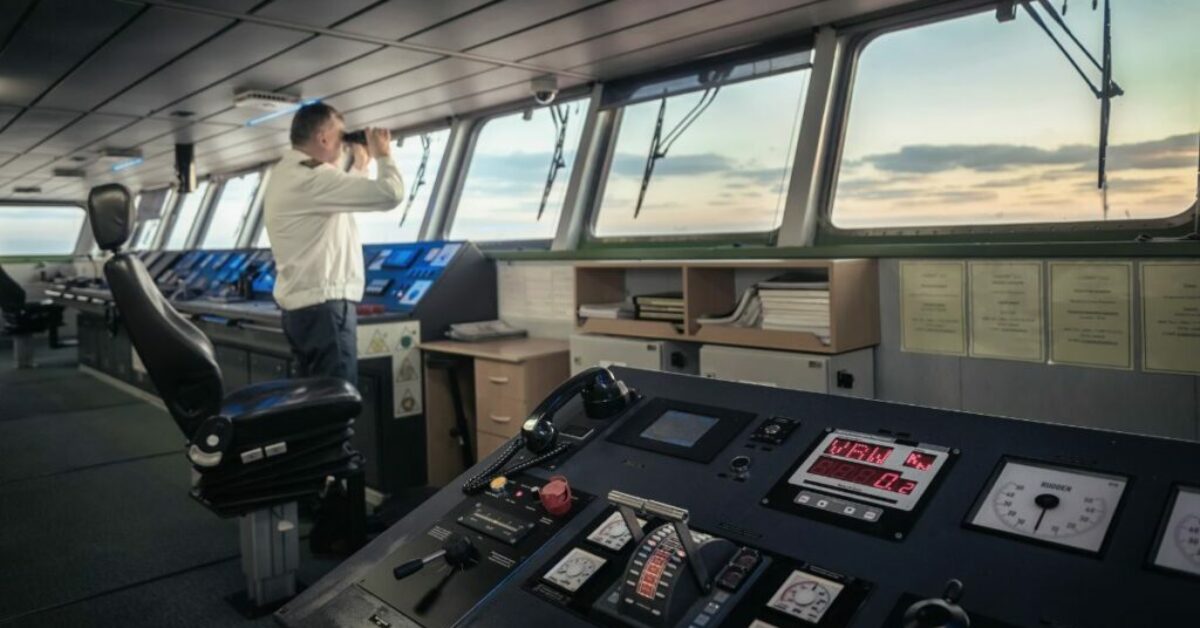How To Become A Cruise Ship Captain?
Cruises are a popular way to travel, with millions of people taking to the seas each year to explore new destinations and enjoy time spent on a floating resort. But have you ever wondered what it takes to become a cruise ship captain? It’s not as simple as just steering the ship – it requires a combination of education, experience, and skills that not everyone possesses. In this article, we’ll explore the steps to becoming a cruise ship captain, the skills you’ll need, and the benefits of pursuing this exciting career path.
Steps To Becoming A Cruise Ship Captain
The path to becoming a cruise ship captain is an exciting and challenging journey that requires a combination of education, training, and experience. While it may seem like a daunting task, with dedication and hard work, you can achieve your dream of becoming a captain of a luxurious cruise ship.
- Acquire the Necessary Education and Training
The first step to becoming a cruise ship captain is to acquire the necessary education and training. Most cruise lines require their captains to have a degree from a maritime academy or university, as well as a minimum of several years of experience in the industry. This education and training will provide you with a solid foundation in navigation, ship operations, and safety procedures, all of which are essential skills for a cruise ship captain.
- Gain Experience
After obtaining your degree, you’ll need to gain experience by working as a deck officer on cargo ships or smaller passenger vessels, often starting as a third officer. This experience will provide you with the opportunity to learn from experienced captains and crew members, as well as gain practical experience in ship operations and navigation.
Once you’ve gained experience as a deck officer, you’ll need to work your way up the ranks, spending time as a second officer and then a chief officer. During this time, you’ll start to gain experience in ship operations, navigation, and safety procedures. You’ll also learn how to manage a team of crew members, which is an essential skill for a cruise ship captain. - Complete Advanced Training
Eventually, you may have the opportunity to become a captain, but this will require additional experience and qualifications, such as a Master’s license and advanced training in shiphandling and management. This advanced training will provide you with the skills and knowledge necessary to navigate a large cruise ship safely and efficiently, as well as manage a team of crew members and provide exceptional customer service to passengers.
- Obtain Certifications
Becoming a cruise ship captain also involves obtaining certifications from regulatory bodies such as the International Maritime Organization (IMO) and the United States Coast Guard (USCG). These organizations set standards for training, safety, and navigation practices, and require ongoing training and certification to maintain compliance. As a captain, it’s your responsibility to ensure that your ship and crew are in compliance with these regulations, which is essential for the safety and well-being of everyone on board.
Becoming a cruise ship captain is a challenging and rewarding career that requires a combination of education, training, and experience. With dedication and hard work, you can achieve your dream of becoming a captain of a luxurious cruise ship and provide unforgettable experiences for passengers from around the world.
Skills Needed to Become a Cruise Ship Captain
In addition to the technical skills required for the job, a successful cruise ship captain must also possess a range of personal qualities that are essential for leading a team and ensuring the safety and wellbeing of passengers and crew. These qualities include strong interpersonal skills, a calm and composed demeanor, and the ability to remain focused and level-headed in high-pressure situations.
As the captain of a cruise ship, you’ll be responsible for overseeing a diverse team of crew members, including deckhands, engineers, and hospitality staff. This requires excellent leadership abilities, including the ability to motivate and inspire your team, delegate tasks effectively, and provide clear guidance and direction.
Effective communication is also crucial for a cruise ship captain, as you’ll need to be able to communicate effectively with crew members, passengers, and other stakeholders. This includes being able to give clear and concise orders, as well as being able to listen actively and respond to feedback and concerns from others.
Another key skill for a cruise ship captain is adaptability. Cruise ships operate in a constantly changing environment, and you’ll need to be able to respond quickly and effectively to changing weather conditions, mechanical issues, and other unexpected events. This requires a flexible mindset and the ability to think creatively and outside the box when necessary.
Finally, a successful cruise ship captain must have a deep understanding and appreciation for the sea and the environment in which they operate. This includes a commitment to safety and environmental stewardship, as well as a passion for exploring and discovering new destinations and cultures around the world. With the right combination of skills and personal qualities, a career as a cruise ship captain can be both challenging and rewarding, offering opportunities for adventure, personal growth, and professional development.
What is A Cruise Ship Captain?
A cruise ship captain is not just a title, it is a position of great responsibility and leadership. The captain is the face of the ship and is responsible for ensuring that all passengers have a safe and enjoyable experience while on board. They are the ultimate authority on the ship and their decisions can have a significant impact on the lives of everyone on board.
Aside from navigating the ship, the captain is also responsible for managing the crew. This involves ensuring that all crew members are properly trained, motivated, and working together as a team. The captain must also be able to handle any conflicts or issues that arise among the crew, and make sure that everyone is working towards the common goal of providing excellent service to the passengers.
In addition to managing the crew, the captain is also responsible for the safety and security of all passengers on board. This includes ensuring that all safety protocols are followed, such as conducting regular safety drills and making sure that all safety equipment is in good working order. The captain must also be able to respond quickly and decisively in the event of an emergency, such as a fire or medical emergency.
Another important aspect of the captain’s role is to provide entertainment and activities for passengers. This includes organizing events such as live music performances, dance parties, and other social activities. The captain must also be able to make decisions about when to change course or adjust the ship’s itinerary in order to provide the best possible experience for passengers.
Overall, being a cruise ship captain is a challenging and rewarding career. It requires a unique combination of technical skills, leadership abilities, and a commitment to ensuring the safety and well-being of everyone on board. If you are considering a career as a cruise ship captain, be prepared to work hard, make tough decisions, and always put the needs of your passengers first.
The Benefits of Working as A Cruise Ship Captain
Becoming a cruise ship captain can be an incredibly rewarding career both financially and personally. The job of a cruise ship captain is one that comes with many benefits, including a high salary, free meals and accommodations, travel opportunities, and the chance to work with a diverse and international crew.
One of the most significant benefits of working as a cruise ship captain is the financial compensation. Captains typically earn upwards of six figures per year, making it a lucrative career choice. Additionally, many cruise lines offer bonuses and other incentives to their captains, such as performance-based bonuses and profit-sharing opportunities.
Another benefit of working as a cruise ship captain is the opportunity to travel. Cruise ships visit ports all over the world, from the Caribbean to Alaska to Europe and beyond. Captains have the chance to explore new destinations and experience different cultures, all while getting paid to do so.
In addition to travel opportunities, working as a cruise ship captain also offers the chance to work with a diverse and international crew. Cruise ships employ crew members from all over the world, creating a rich and vibrant work environment. Captains must be able to communicate effectively with crew members from different cultures and backgrounds, making it a great opportunity to develop cross-cultural communication skills.
However, it’s important to note that the job of a cruise ship captain is not for everyone. Captains must be able to work long hours, often for weeks or months at a time without a break. They must also be willing to take on significant responsibility and be able to perform under high-pressure situations.
Becoming a cruise ship captain can be an incredibly rewarding career choice. From the financial compensation to the travel opportunities to the chance to work with a diverse and international crew, there are many benefits to this profession. However, it’s important to carefully consider the demands of the job before pursuing a career as a cruise ship captain.
Becoming a cruise ship captain is a challenging and rewarding career path that requires a combination of education, experience, and skills. If you’re interested in pursuing this exciting career, start by acquiring the necessary education and experience, as well as developing the personal traits and skills that are essential for success. With hard work and dedication, you too could become a cruise ship captain and enjoy all the benefits and opportunities that this career has to offer.




